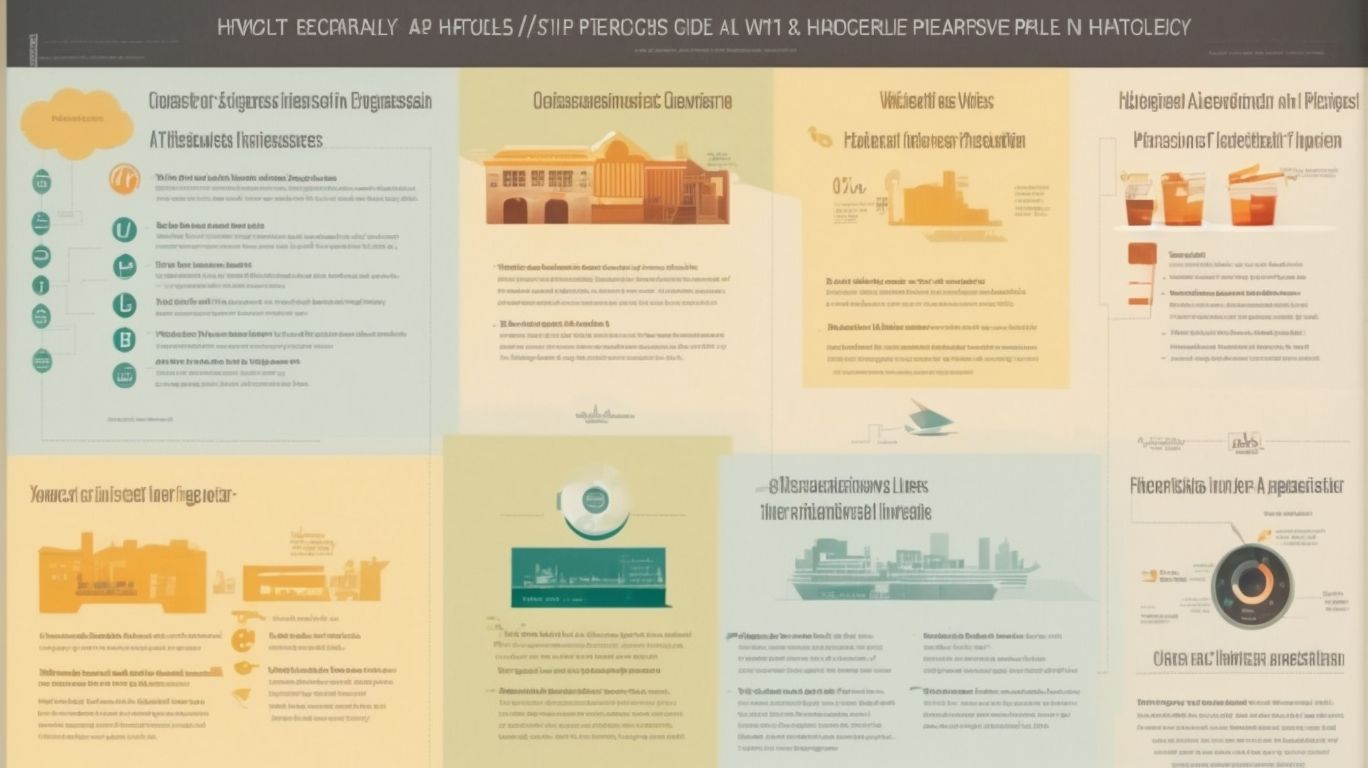Are you curious about the inner workings of the human mind? Interested in exploring the fascinating world of psychology? Look no further than AP Psychology! In this article, we will delve into the various topics covered in AP Psychology, from the history and approaches of psychology to the treatment of psychological disorders.
Whether you’re a student preparing for the AP exam or simply eager to expand your knowledge, this article will provide you with a comprehensive overview of this intriguing subject.
Contents
- 1 What Is AP Psychology?
- 2 What Are the Topics Covered in AP Psychology?
- 2.1 History and Approaches
- 2.2 Research Methods
- 2.3 Biological Bases of Behavior
- 2.4 Sensation and Perception
- 2.5 States of Consciousness
- 2.6 Learning
- 2.7 Cognition
- 2.8 Motivation and Emotion
- 2.9 Developmental Psychology
- 2.10 Personality
- 2.11 Testing and Individual Differences
- 2.12 Abnormal Psychology
- 2.13 Treatment of Psychological Disorders
- 2.14 Social Psychology
- 2.15 AP Exam Preparation
- 3 Frequently Asked Questions
What Is AP Psychology?
AP Psychology, a course offered by the College Board through its Advanced Placement program, provides high school students with the opportunity to study college-level psychology and potentially earn college credits.
The structure of the AP Psychology course encompasses a wide array of topics, from biological bases of behavior to social psychology, allowing students to gain a comprehensive understanding of the field. The exam format consists of a multiple-choice section and a free-response section, assessing students’ knowledge and analytical skills. By successfully completing the course and exam, students not only demonstrate their proficiency in psychology but also potentially earn college credits, giving them a head start in their academic journey.
What Are the Topics Covered in AP Psychology?
The topics covered in AP Psychology encompass a wide array of essential areas within the field, ranging from scientific foundations and biological bases to cognitive psychology, developmental psychology, and social psychology.
Scientific foundations in AP Psychology delve into the core principles that underpin psychological research and practice. Understanding these foundations is crucial for students to grasp how theories are developed and tested within the field.
Biological bases explore the intricate relationship between the brain, hormones, genetics, and behavior, shedding light on the physiological processes that shape our mental experiences.
Cognitive psychology focuses on mental processes like perception, memory, and problem-solving, providing insights into how humans process information and make decisions.
Developmental psychology examines how individuals grow and change over their lifespans, from infancy to old age, exploring the factors that influence human development.
Social psychology investigates how individuals are influenced by their social environments, studying topics such as attitudes, conformity, and interpersonal relationships. Each of these areas contributes to a comprehensive understanding of human behavior and psychological processes in various contexts.
History and Approaches
The History and Approaches section in AP Psychology delves into the evolution of psychological thought, major historical figures, and the various approaches used to study behavior, mental processes, and cognition.
One of the earliest developments in psychology can be traced back to ancient Greece, where philosophers like Aristotle pondered the complexities of the mind. Moving forward, the Renaissance period saw the emergence of scientific inquiry into human behavior. It was not until the late 19th century that psychology began to be recognized as a formal discipline, with Wilhelm Wundt often credited as the father of experimental psychology with the establishment of the first psychological laboratory in 1879 in Leipzig, Germany.
Research Methods
The Research Methods section of AP Psychology focuses on the methodologies used to conduct psychological research, including experimental design, data analysis, and ethical considerations in studying behavior and mental processes.
In psychology, experiments are a common research methodology used to explore cause-and-effect relationships between variables. They allow researchers to manipulate variables to observe their effects on behavior or mental processes.
Surveys, on the other hand, involve collecting data from a large sample of participants through questionnaires or interviews to gather insights on attitudes, beliefs, or behaviors.
Case studies delve deeply into specific individuals or groups, providing rich qualitative data. While experiments offer high control over variables, surveys offer large-scale data collection, and case studies provide in-depth understanding of unique cases.
Biological Bases of Behavior
The Biological Bases of Behavior section in AP Psychology explores how biological factors influence behavior, mental processes, cognition, and intelligence, emphasizing the role of genetics, the brain, and the nervous system.
Genetics, as a core element in this exploration, plays a pivotal role in determining various psychological traits and susceptibilities. Genetic variations can affect neurotransmitter levels, impacting mood regulation and responses to stress. The field of neuroscience sheds light on how brain structures and functions correlate with behavior patterns and cognitive processes. By studying the intricate networks in the brain, researchers can unveil the mechanisms behind decision-making, memory formation, and even disorders such as schizophrenia or Alzheimer’s disease.
Sensation and Perception
Sensation and Perception in AP Psychology focus on how organisms sense and perceive the world around them, exploring the biological underpinnings of sensory experiences, perceptual processes, and their role in behavior and learning.
Understanding sensory systems involves studying the different ways in which organisms receive and process information through sight, sound, touch, taste, and smell.
The complex interplay between sensory modalities plays a crucial role in shaping our perceptions of the environment. Through perceptual organization, individuals make sense of the chaotic influx of stimuli, bringing order and coherence to the sensory input.
Exploring perceptual illusions sheds light on how the brain constructs reality and highlights the lability of human perception. Cognitive processing further delves into the intricate mechanisms of information processing and decision-making based on sensory inputs.
States of Consciousness
The States of Consciousness section in AP Psychology explores the various states of awareness, altered states of consciousness, and their impact on behavior, mental processes, and cognitive functions.
One of the fundamental aspects covered in this topic is sleep patterns and the different stages of sleep that individuals go through nightly. From the rapid eye movement (REM) stage, characterized by vivid dreams and increased brain activity, to the slow-wave sleep (SWS) stages, where deep restorative processes occur, each phase plays a crucial role in maintaining overall health and well-being. Understanding how these sleep cycles influence memory consolidation, emotional regulation, and overall cognitive performance is essential in deciphering the complexities of human consciousness.
Learning
The Learning section of AP Psychology covers the theories and processes involved in learning, including classical conditioning, operant conditioning, observational learning, and their applications in understanding behavior, cognition, and motivation.
One of the key theories explored is classical conditioning, pioneered by Ivan Pavlov, where a neutral stimulus becomes associated with a specific response after repeated pairings. This forms the basis of how individuals develop automatic responses to certain stimuli.
In contrast, operant conditioning, introduced by B.F. Skinner, focuses on how behavior is shaped through reinforcement and punishment. Observational learning, proposed by Albert Bandura, emphasizes the role of modeling and imitation in acquiring new behaviors. For a comprehensive overview of AP Psychology, visit this reputable source.
These theories are essential in comprehending how learning occurs and how individuals adapt to their environments. The study of reinforcement mechanisms plays a crucial role in behavior modification, emphasizing the significance of rewards and punishments in shaping behavior.
Cognition
The Cognition section in AP Psychology delves into cognitive processes such as thinking, problem-solving, memory, and intelligence, examining how mental operations shape behavior and decision-making.
Understanding cognitive functions involves exploring how individuals process, store, and retrieve information. Memory encoding plays a crucial role in this process, as it involves converting sensory input into a form that can be stored in memory. Retrieving information from memory relies on various strategies, with retrieval cues triggering the recall of stored information. Problem-solving strategies, on the other hand, involve using cognitive tools such as algorithms, heuristics, and mental representations to navigate challenges and make decisions efficiently. Intelligence theories further deepen our understanding of how cognitive abilities differ among individuals.”
Motivation and Emotion
The Motivation and Emotion section of AP Psychology explores the psychological factors that drive behavior, including intrinsic and extrinsic motivation, emotional processes, and their influence on social interactions and decision-making.
Understanding the complex relationship between motivation and emotion is essential in comprehending human behavior. Motivation theories such as Maslow’s Hierarchy of Needs and Self-Determination Theory shed light on how various factors stimulate individuals to act towards achieving their goals.
On the other hand, emotional expressions play a crucial role in signaling one’s state of mind and influencing interpersonal relationships. The interplay between motivation, emotion, and social contexts reveals how individuals’ affective states and drive reduction mechanisms shape their responses within different social settings.
Developmental Psychology
Developmental Psychology in AP Psychology focuses on the physical, cognitive, and socioemotional development across the lifespan, exploring how individuals change, grow, and adapt from infancy to old age.
This encompassing field delves into the intricacies of how individuals acquire language, develop problem-solving abilities, form relationships, and navigate the complexities of their emotional worlds throughout different stages of life.
From Piaget’s stages of cognitive development to Erikson’s psychosocial theory, developmental psychologists seek to understand the myriad factors that shape personality, behavior, and social functioning.
Through exploring attachment theories and socialization processes, researchers gain insights into how early experiences influence later relationships, emotional regulation, and overall well-being.
Personality
The Personality section of AP Psychology examines the theories of personality, trait assessments, and the influence of social contexts on individual differences in behavior, motivation, and interpersonal relationships.
One of the major personality theories explored in this section is the psychodynamic perspective, introduced by Sigmund Freud, which emphasizes the role of the unconscious mind and childhood experiences in shaping personality development. Another significant approach is the Humanistic perspective, associated with Carl Rogers and Abraham Maslow, focusing on self-actualization and personal growth.
Regarding trait assessments, tools like the Big Five personality traits (openness, conscientiousness, extraversion, agreeableness, and neuroticism) are commonly used to measure and classify individual differences in personality characteristics.
Social environments play a crucial role in shaping personality. Factors such as family dynamics, cultural influences, and societal norms can all impact how an individual’s personality develops over time.
Testing and Individual Differences
The Testing and Individual Differences section in AP Psychology focuses on psychological testing, cognitive assessments, and the measurement of individual differences in intelligence, behavior, and cognitive abilities.
Psychological testing plays a crucial role in understanding various aspects of human cognition and behavior, providing valuable insights into an individual’s thought processes and emotional responses.
Intelligence assessments, such as IQ tests, help quantify cognitive capabilities and potential. These assessments, along with personality tests, contribute to the analysis of individual differences, shedding light on why people may respond differently to similar situations.
The field of psychometrics, which studies the design and application of tests, ensures that these assessments are reliable and valid measures of cognitive performance.
Abnormal Psychology
Abnormal Psychology in AP Psychology addresses the classification, diagnosis, and treatment of psychological disorders, exploring the manifestations of mental health issues and therapeutic interventions.
One of the key aspects of understanding abnormal psychology is the identification and categorization of various mental health conditions based on a set of defined criteria. The Diagnostic and Statistical Manual of Mental Disorders (DSM-5) is a widely used tool to establish these diagnostic criteria for different psychological disorders. Through a systematic approach, clinicians assess factors such as the duration, frequency, and intensity of symptoms to determine the appropriate diagnosis.
Therapeutic approaches in treating psychological disorders encompass a range of modalities, including psychotherapy, medication, and sometimes a combination of both. Cognitive-behavioral therapy (CBT), for instance, is a common psychotherapeutic technique that focuses on changing unhealthy patterns of thinking and behaviors to alleviate symptoms of depression, anxiety, and other disorders.
Treatment of Psychological Disorders
The Treatment of Psychological Disorders section in AP Psychology examines various therapeutic methods, interventions, and approaches used in addressing psychological issues, drawing from biological, behavioral, and social science perspectives.
These therapeutic modalities encompass a wide range of treatment options tailored to the specific needs of individuals suffering from various psychological disorders.
Psychotherapy plays a central role in providing patients with a supportive environment to explore their emotions and behaviors. Additionally,
pharmacotherapy involving the use of medications is often integrated to manage symptoms of certain mental health conditions. In parallel,
holistic approaches that consider the interconnectedness of mind, body, and spirit are gaining recognition for promoting overall well-being.
Social Psychology
Social Psychology in AP Psychology focuses on the study of social influences, group dynamics, interpersonal relationships, and the impact of situational factors on behavior, motivation, and emotional responses.
Conformity is a central concept within the realm of social psychology, exploring how individuals adjust their thoughts, feelings, and behaviors to align with group norms. Whether it’s the Asch conformity experiments or the influence of informational and normative conformity, these studies shed light on the power of social pressure on individual decision-making processes.
Examining the principles of persuasion unveils the intricate ways in which attitudes are formed and changed through communication and social influence tactics.
Delving into social cognition allows psychologists to understand how people perceive, interpret, and remember information about themselves and others, influencing their social interactions and relationships. Understanding the complexities of these cognitive processes aids in comprehending social behaviors and decision-making strategies employed in different contexts.
AP Exam Preparation
AP Exam Preparation in AP Psychology involves familiarizing students with the exam format, practicing with sample questions, and reviewing key concepts to enhance their performance on the AP exam administered by the College Board.
Effective strategies for preparing for the AP Psychology exam include:
- Creating a study schedule that allocates specific time for each topic.
- Utilizing flashcards to memorize key terms and concepts.
- Joining study groups to engage in discussions and clarify doubts.
It is crucial for students to analyze past exam questions to understand the patterns and types of questions that may appear. Incorporating active learning techniques such as teaching the material to someone else or creating mind maps can aid in long-term retention of information.
Frequently Asked Questions
What is AP Psychology?
AP Psychology is a college-level course that introduces students to the fundamental concepts, theories, and research methods in the field of psychology. It is designed to provide a comprehensive overview of the subject and prepare students for the AP Psychology exam.
Who can take AP Psychology?
Any high school student can take AP Psychology, but it is typically recommended for students who have a strong interest in psychology or are considering a career in the field. Some schools may have prerequisite courses or a minimum grade requirement for enrollment.
How is AP Psychology different from a regular psychology course?
AP Psychology is more rigorous and covers a wider range of topics compared to a regular high school psychology course. It also follows a specific curriculum and prepares students for the AP exam, which can earn them college credit.
What topics are covered in AP Psychology?
AP Psychology covers a variety of topics, including the history of psychology, research methods, biological bases of behavior, sensation and perception, consciousness, motivation and emotion, learning, memory, cognition, personality, psychological disorders, and social psychology.
Can taking AP Psychology help with college admissions?
Yes, taking AP Psychology can demonstrate to colleges that you have a strong academic background and are prepared for college-level courses. It can also potentially earn you college credit depending on your exam score.
Is there a recommended textbook for AP Psychology?
Yes, the College Board recommends the textbook “Psychology” by David G. Myers for the course. However, some schools may use a different textbook or provide their own materials.



